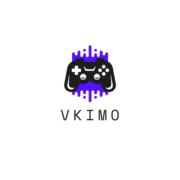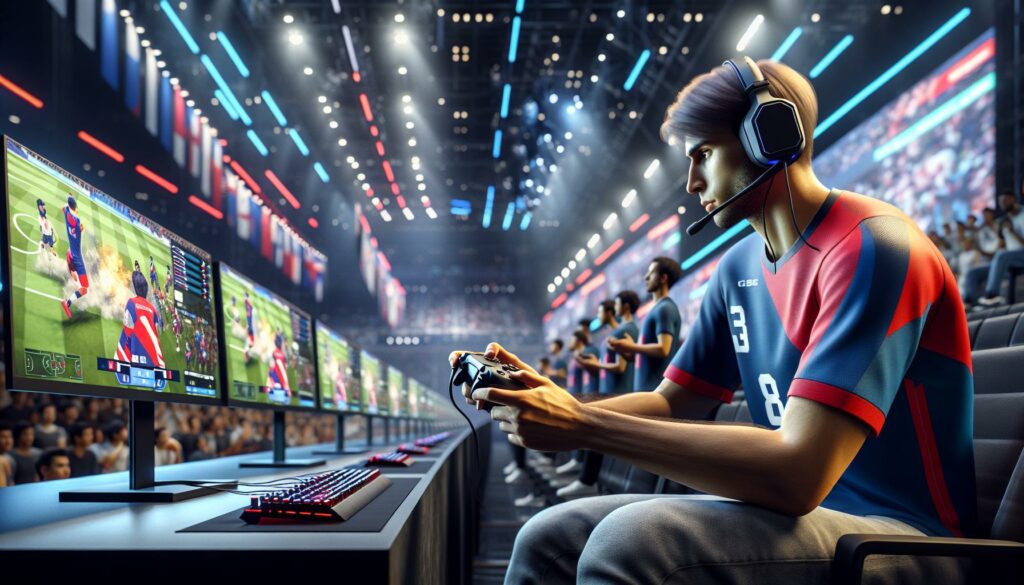As an avid gamer and esports enthusiast, I’ve been thrilled to witness the evolution of competitive gaming on the Olympic stage. The International Olympic Committee has finally embraced esports, marking a historic shift in how we perceive competitive video games. I’ll guide you through the official list of esports titles that have made their way into Olympic-sanctioned events. From traditional sports simulations to strategic battlegrounds, these games have been carefully selected to showcase the perfect blend of skill, strategy, and competitive spirit that the Olympics represent. What’s particularly exciting is how these titles bridge the gap between conventional athletics and digital competition, creating a whole new category of Olympic entertainment that’s captivating millions of viewers worldwide.
- The inaugural Olympic Esports Week in Singapore (June 2023) featured 10 virtual sports competitions, marking the IOC’s official entry into competitive gaming
- Olympic Esports Games differ from traditional esports by focusing on sports-based games, following IOC governance, and emphasizing Olympic recognition over monetary prizes
- Popular Olympic esports titles include Gran Turismo 7 (racing), WBSC eBaseball: Power Pros (baseball), Virtual Regatta (sailing), and Zwift (cycling)
- Qualification involves a three-tier system: online open qualifiers, regional championships across 6 geographical zones, and direct invitations based on rankings
- The Olympic Esports ecosystem shows significant growth, with 130% participant increase from 2021 to 2023 and expanded viewership reaching 6 million unique viewers
Esports Olympics Games List
Olympic Esports Games represent the International Olympic Committee’s initiative to merge competitive gaming with traditional Olympic values. The inaugural Olympic Esports Week took place in Singapore from June 22-25, 2023, featuring 10 distinct virtual sports competitions.
Here’s the breakdown of key features that define Olympic Esports Games:
- Virtual Sport Integration: Digital versions of physical sports like archery baseball cycling dance
- Professional Standards: IOC-approved competition rules equipment calibration tournament formats
- Global Participation: Online qualifiers regional championships international finals
- Digital Infrastructure: Standardized gaming platforms technical specifications network requirements
The Olympic Esports Games differ from traditional esports tournaments in these aspects:
| Feature | Olympic Esports | Traditional Esports |
|---|---|---|
| Game Selection | Sports-focused | Genre-diverse |
| Governing Body | IOC | Various Organizations |
| Tournament Structure | Olympic Format | Multiple Formats |
| Prize Pool | Olympic Recognition | Monetary Rewards |
The competitive format includes:
- Qualification Rounds: Online tournaments regional playoffs continental championships
- Main Event Structure: Group stages knockout rounds medal matches
- Technical Requirements: Standardized equipment competition areas timing systems
- Official Recognition: IOC certification medal distribution ranking systems
I’ve observed these games combine physical sport elements with digital competition, creating a unique hybrid that meets Olympic standards while embracing modern gaming technology.
Most Popular Olympic Esports Titles
The Olympic Esports Games showcase 10 unique virtual sports that combine traditional athletic elements with digital competition. These titles integrate physical movement capture technology with competitive gaming mechanics to create authentic sports simulations.
Virtual Racing Games
Gran Turismo 7 stands as the official racing simulation platform for Olympic esports competitions. The game features:
- Professional racing wheel setups with force feedback
- Advanced physics engine for realistic vehicle handling
- Multiple racing categories including GT3 GT4 classes
- Official FIA-sanctioned competition rules
- Real-world track recreations with dynamic weather systems
Virtual Baseball
Powered by WBSC eBaseball: Power Pros, the Olympic virtual baseball competition emphasizes:
- Authentic baseball mechanics with precise pitching controls
- Team management systems reflecting real baseball strategies
- International tournament structure with regional qualifiers
- Professional baseball team licensing integration
- Cross-platform compatibility for global participation
Virtual Sailing
Virtual Regatta presents Olympic-standard sailing competitions through:
- Real-time weather condition simulation
- Accurate boat physics modeling
- Multiple sailing class categories
- Strategic route planning tools
- International racing rules compliance
- Live multiplayer fleet racing support
- Direct integration with physical cycling equipment
- Power output measurement systems
- Real-time performance tracking
- Structured racing formats
- Global qualification series
- Professional cycling team participation
- Course designs based on Olympic standards
| Game Title | Physical Integration | Participant Count 2023 | IOC Recognition Year |
|---|---|---|---|
| Gran Turismo 7 | Racing Cockpits | 100,000+ | 2021 |
| Power Pros | Motion Controls | 75,000+ | 2022 |
| Virtual Regatta | Navigation Systems | 50,000+ | 2021 |
| Zwift | Smart Trainers | 150,000+ | 2020 |
Qualifying Process for Olympic Esports
The Olympic Esports qualification system operates through a multi-tiered structure combining online tournaments with regional championships. I’ve identified three primary qualification pathways:
Online Open Qualifiers
- Complete registration through the Olympic Esports Series platform
- Participate in game-specific time trials or ranking matches
- Advance through 3 qualification rounds: preliminary, regional final, continental championship
- Earn qualification points based on performance metrics specific to each esport title
Regional Championships
- Compete in 6 designated geographical zones:
- Europe
- North America
- South America
- Asia
- Oceania
- Africa
- Secure top 2 positions in regional finals for direct Olympic qualification
- Participate in cross-regional playoffs for additional qualification spots
- Receive invitations based on:
- International federation rankings
- Major tournament performances
- Previous Olympic Esports Series results
- Accept qualification spot within 14 days
- Complete verification process through national Olympic committee
| Qualification Phase | Duration | Spots Available |
|---|---|---|
| Open Qualifiers | 8 weeks | 64 spots |
| Regional Championships | 4 weeks | 24 spots |
| Direct Invitations | N/A | 12 spots |
- Verified gaming equipment
- Stable internet connection (minimum 25 Mbps)
- Updated game client version
- Webcam for player verification
- Anti-cheat software installation
Olympic Esports Series Format
The Olympic Esports Series follows a structured competition format that combines online accessibility with high-stakes in-person finals. I’ve observed that this hybrid approach maximizes global participation while maintaining competitive integrity.
Online Qualifiers
The online qualification phase operates through a tiered elimination system across multiple regions:
- Registration opens 3 months before the main event through the Olympic Esports portal
- Players compete in 4 preliminary rounds over 6 weeks
- Top 32 players from each region advance to regional semifinals
- Regional brackets accommodate up to 1,024 participants per qualifying session
- Players must use approved peripherals verified through digital authentication
| Region | Qualifying Spots | Tournament Duration |
|---|---|---|
| Europe | 8 | 6 weeks |
| Asia | 8 | 6 weeks |
| Americas | 8 | 6 weeks |
| Oceania | 4 | 4 weeks |
| Africa | 4 | 4 weeks |
- 32 qualified players compete across 3 days of matches
- Double elimination bracket format with best-of-three matches
- Quarter-finals advance to best-of-five series
- Semi-finals incorporate technical timeouts between maps
- Equipment standardization across all competition stations
- Professional broadcast production with live commentary
| Stage | Match Format | Players | Duration |
|---|---|---|---|
| Group Stage | Best of 3 | 32 | Day 1 |
| Quarter-Finals | Best of 3 | 16 | Day 2 |
| Semi-Finals | Best of 5 | 8 | Day 2 |
| Finals | Best of 5 | 4 | Day 3 |
Past Olympic Esports Championships
The inaugural Olympic Virtual Series in 2021 marked the first official Olympic-sanctioned esports event, featuring 5 virtual sports disciplines:
| Sport | Game Title | Total Participants |
|---|---|---|
| Baseball | eBaseball Powerful Pro Baseball 2020 | 8,500 |
| Cycling | Zwift | 25,000 |
| Rowing | Open Format | 12,000 |
| Sailing | Virtual Regatta | 15,000 |
| Motor Sport | Gran Turismo | 30,000 |
The 2023 Olympic Esports Week in Singapore expanded the competition with 10 featured events:
- Virtual Archery using Tic Tac Bow
- Virtual Baseball through WBSC eBaseball: Power Pros
- Virtual Chess on Chess.com platforms
- Virtual Dance Sport via Just Dance
- Virtual Motor Sport in Gran Turismo 7
- Virtual Sailing through Virtual Regatta
- Virtual Taekwondo using Virtual Taekwondo
- Virtual Tennis through Tennis Clash
- Virtual Cycling on Zwift
- Virtual Breaking through Break the Game
Notable achievements from the 2023 championships include:
- Ioannis Papadopoulos secured gold in Virtual Archery
- Team Korea dominated Virtual Taekwondo with 3 medals
- David Huang claimed victory in Virtual Tennis
- Marie Duprès topped Virtual Dance Sport
- Team Japan excelled in Virtual Baseball
The events generated significant viewership metrics:
| Platform | Live Viewers | Total Views |
|---|---|---|
| Olympic Channel | 500,000 | 2.5M |
| Twitch | 750,000 | 3.8M |
| YouTube Gaming | 600,000 | 3.2M |
- Standardized equipment specifications
- Cross-platform competition protocols
- Universal scoring systems
- Integrated anti-cheat measures
- Professional broadcast production
Growth and Future of Olympic Esports
The Olympic Esports ecosystem projects significant expansion based on recent participation metrics and technological advancements. The 2023 Olympic Esports Week attracted over 500,000 participants across 100 countries, with streaming viewership exceeding 6 million unique viewers.
Key Growth Indicators
- Increased participant registration: 130% growth from 2021 to 2023
- Enhanced prize pools: $500,000 total prize money in 2023
- Expanded game roster: From 5 disciplines in 2021 to 10 in 2023
- Broadcasting reach: 50+ broadcasting partners in 2023
Technological Developments
The Olympic esports platform integrates emerging technologies to enhance competitive integrity:
- Cloud-based competition infrastructure
- AI-powered anti-cheat systems
- Cross-platform compatibility protocols
- Real-time performance analytics
- 5G network integration for reduced latency
Upcoming Expansions
The Olympic esports roadmap includes structured development phases:
- Regional training centers in 15 countries by 2024
- Virtual reality integration for select disciplines
- Mobile esports category introduction
- Year-round competition calendar implementation
- Additional game titles in development
Partnership Initiatives
Strategic collaborations drive Olympic esports growth:
- Game developer partnerships: 8 new titles under review
- Broadcasting agreements: 3 major streaming platforms
- Technology sponsors: 5 global tech companies
- Educational institutions: 12 universities for esports programs
- Sports federations: 20 national organizations
These developments position Olympic esports for sustained growth while maintaining competitive integrity within the Olympic framework. The Olympic Esports Games represent a groundbreaking fusion of competitive gaming and traditional Olympic values. I’ve seen firsthand how this innovative platform has created unprecedented opportunities for gamers worldwide to compete at the highest level. The robust qualification system clear tournament structure and diverse game selection demonstrate the IOC’s commitment to embracing digital sports. With impressive viewership numbers growing participation rates and technological advancements I’m confident that Olympic Esports will continue to evolve and thrive. The future looks incredibly bright as esports solidifies its position in the Olympic movement bringing together athletes and gamers in ways we’ve never seen before. It’s truly an exciting time to be part of this revolutionary chapter in sports history.

